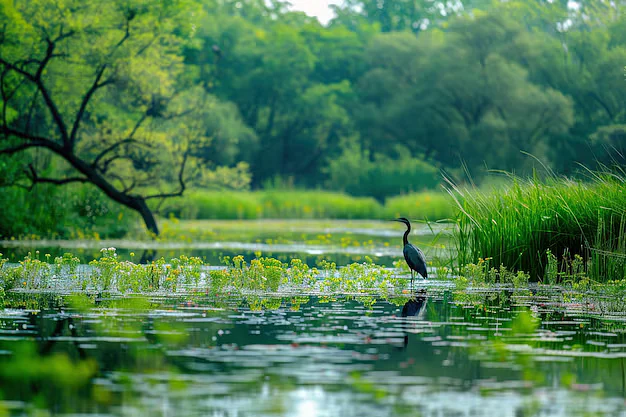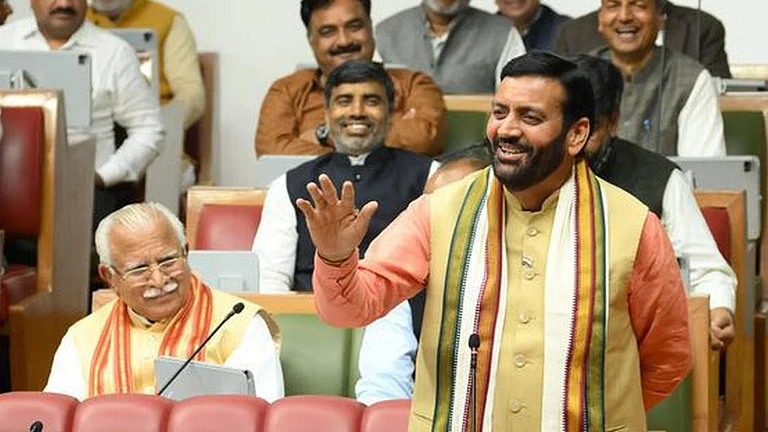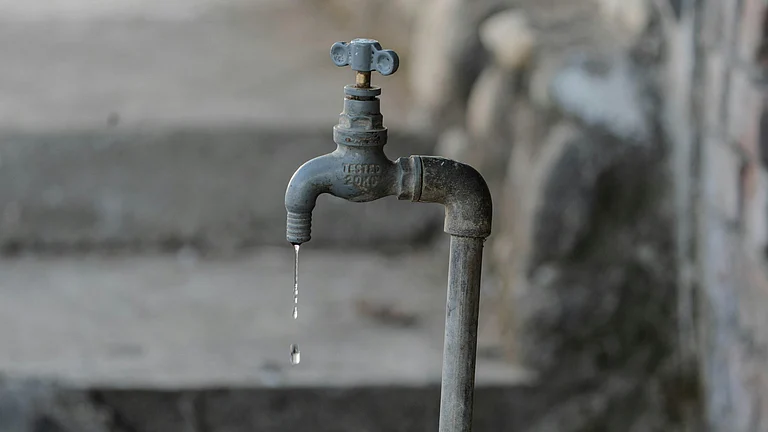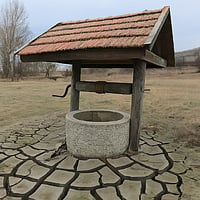This year’s Union Budget has done significantly more than pay lip service to the wider cause of the environment. Tucked away in Budget 2025 is one of the most significant increases for any ministry: 9% for the Union ministry of environment. Within this is a sharp rise of 50% for the conservation of acquatic ecosystems—now upto Rs 35 crore. Is this enough? Clearly not, but that it features with a significant leg-up shows that this is on the radar now.
The increase in the budget must consider intentional investments in the conservation and renewal of wetlands in India, which are often the overlooked guardians. "Wetlands are not wastelands; they are wonderlands," writes Edward Maltby, professor Emeritus in wetlands sciences at the University of Liverpool. As the discussion around global climate change rises to a crescendo, these hitherto neglected, certainly unattractive-looking parts of the landscape (or waterscape) are finally getting their place in the sun, revealing their unique and captivating beauty.
Vital Ecosystems
But then, what are wetlands? As the name suggests, these areas are covered with water—seasonally or perennially. With a water table close to the land surface long enough every year, they support aquatic plant vegetation. With a rich range of plant and animal species, wetlands have the richest diversity of all ecosystems. And therein lies their worth.
The impact is wide-ranging—from containing the effect of "extreme events"—now a part of the common language after the 6th IPCC Reports, such as floods, to being sinks for carbon storage and regulating water cycles. Think no further than the Sunderbans to appreciate their role in absorbing storm surges and stabilising shorelines, giving resilience to mitigate natural disasters, instilling hope in the face of climate change.
It is a tempting thought, especially in the land-scarce urban environments we live in, to think of draining the wetlands and putting them to more tangible, 'productive' use. Alternatively, filling them up to form a substantial water body like a lake is sensible. The answer lies in the social good versus private benefit logic, powerfully articulated by the Ramsar Convention: "The economic worth of the ecosystem services provided to society by intact, naturally functioning wetlands is frequently much greater than the perceived benefits of converting them to 'more valuable' intensive land use—particularly as the profits from unsustainable use often go to relatively few individuals or corporations, rather than being shared by society as a whole."
India, which had just 24 wetlands on this list in 2014, now has 89—with four being added at the start of February, including Khecheopalri in the Kanchenjuga’s shadow in Sikkim, where legend has it that birds pick up any leaf that falls on the water surface. This is most certainly a reflection of the increasing focus of both government and civil society in valuing the multifaceted role of wetlands.
February 2 marks the anniversary of the signing of the critical convention, which has been observed as World Wetlands Day since 1997. This year's theme was ‘Protecting Wetlands for our Common Future', firmly placing the discussion in the mainstream and inviting everyone to be part of the conversation.
Safeguarding the Future
Increasing evidence shows that wetlands play a role in tackling climate change and adapting to its effects. Two very diverse examples of this are their role in carbon sequestration, which is capturing and storing carbon to prevent it from entering the atmosphere; wetlands capture and store about 20% of the world's organic carbon. Wetlands are also vital for water purification—they act as natural filters, removing pollutants from water and improving water quality, especially in areas facing water scarcity or pollution.
Ecosystem services cover a wide range—groundwater recharge, storm protection, flood control and more. Wetlands support many species across the plant and animal kingdoms as habitats for wildlife. They are also temporary homes for migratory birds. They are a haven for aquatic life and are of prime importance to fisheries. From a broader perspective, life regeneration requires pollination and wetlands remain a vital habitat for bees and other insects.
These have a direct yet invisible contribution to society's economic, nutritional and livelihood benefits. Fisheries and aquaculture are apparent, but bee-keeping and honey production may not immediately come to mind. Wetlands are vital for maintaining soil moisture at optimal levels in farmlands, so they are essential for productivity—soaking up excess water and hydrating the soil when farmlands dry up.
In a world where natural habitats, unhindered by human interference, are rapidly shrinking, wetlands serve as laboratories of study—ecosystems, conservation and most importantly now, climate resilience. They are not just passive victims of climate change but active players in mitigating its effects.
An area of topical discussion have been the recent California wildfires. Would maintaining wetlands have made a difference? Wetlands can act as natural firebreaks, slowing the spread of wildfires. Their moist environments are less likely to burn, providing a buffer zone that can help protect surrounding areas. Wetlands help mitigate climate change by sequestering carbon, while wildfires release large amounts of carbon dioxide into the atmosphere. Protecting and restoring wetlands can help balance these effects.
Our country’s budget must prioritise wetland conservation and increase investments in their restoration and sustainable management. Strengthening financial and policy support for wetlands today will ensure a more resilient and water-secure future for generations to come.
The author is the chief executive of Hindustan Unilever Foundation. Views are personal.



























